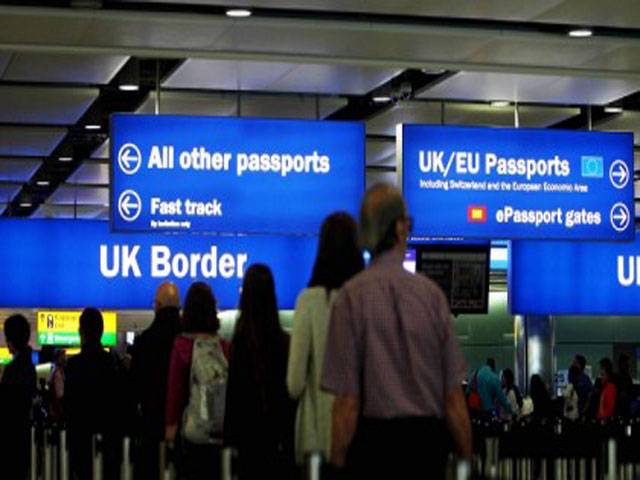LONDON-Low-skilled workers would not get visas under post-Brexit immigration plans unveiled by the government.
It is urging employers to “move away” from relying on “cheap labour” from Europe and invest in retaining staff and developing automation technology.
The Home Office said EU and non-EU citizens coming to the UK would be treated equally after UK-EU free movement ends on 31 December.
Labour said a “hostile environment” would make it hard to attract workers. But Home Secretary Priti Patel told BBC Breakfast the government wanted to “encourage people with the right talent” and “reduce the levels of people coming to the UK with low skills”. But the SNP called this a “ridiculous or dangerous idea”, as many in this group were suffering “ill health or injury”.
Under the plan, the definition of skilled workers would be expanded to include those educated to A-level/Scottish Highers-equivalent standard, not just graduate level, as is currently the case.
Waiting tables and certain types of farm worker would be removed from the new skilled category, but new additions would include carpentry, plastering and childminding.
The government wants to bring in a “points-based” immigration system, as promised in the Conservative election manifesto.
Under this, overseas citizens would have to reach 70 points to be able to work in the UK.
Speaking English and having the offer of a skilled job with an “approved sponsor” would give them 50 points.
More points would be awarded for qualifications, the salary on offer and working in a sector with shortages.
Workers from European Economic Area countries currently have the automatic right to live and work in the UK irrespective of their salary or skill level.
The government says this will end on 31 December, when the 11-month post-Brexit transition period is due to finish.
The salary threshold for skilled workers wanting to come to the UK would be lowered from £30,000 to £25,600.
However, the government says the threshold would be as low as £20,480 for people in “specific shortage occupations” - which currently include nursing, civil engineering, psychology and classical ballet dancing - or those with PhDs relevant to a specific job.
But there would no longer be an overall cap on the number of skilled workers who could come into the UK.
Thursday, November 07, 2024
Immigration: No visas for low-skilled workers, says government

8:56 AM | November 07, 2024
4:24 PM | November 04, 2024
3:25 PM | October 31, 2024
Xi speaks with Trump, says China, US would ‘benefit from cooperation’
3:19 PM | November 07, 2024
Punjab’s Model Bazaars: Public welfare with Rs3.433bn expansion
3:07 PM | November 07, 2024
11.11 set to drive smart spending as Pakistanis seek value amid economic pressures
3:02 PM | November 07, 2024
PM Shehbaz meets Turkish Ambassador to boost bilateral ties
2:56 PM | November 07, 2024
IHC summons Adiala jail official over blocked PTI access to Imran Khan
1:59 PM | November 07, 2024
-
Punjab govt closes schools in smog hit districts until Nov 17
-
Punjab govt closes schools in smog hit districts until Nov 17
-
Lahore tops global smog rankings as AQI soars beyond 1,000
-
Lahore tops world pollution charts with hazardous smog
-
Pakistan continues to send humanitarian aid to Gaza, Lebanon
-
Petrol, diesel prices expected to drop from November 1
Investing in GB
November 07, 2024
Choking in Smog
November 07, 2024
American Conscience
November 07, 2024
Indigenous Weapons
November 06, 2024
Securing Karachi Airport
November 06, 2024
When a Country Doesn’t Care About Its Children
November 07, 2024
The Plight of Awaran
November 07, 2024
The Unyielding Love of a Mother
November 07, 2024
Climate Change
November 07, 2024
Electric Vehicles
November 06, 2024
ePaper - Nawaiwaqt
Nawaiwaqt Group | Copyright © 2024





